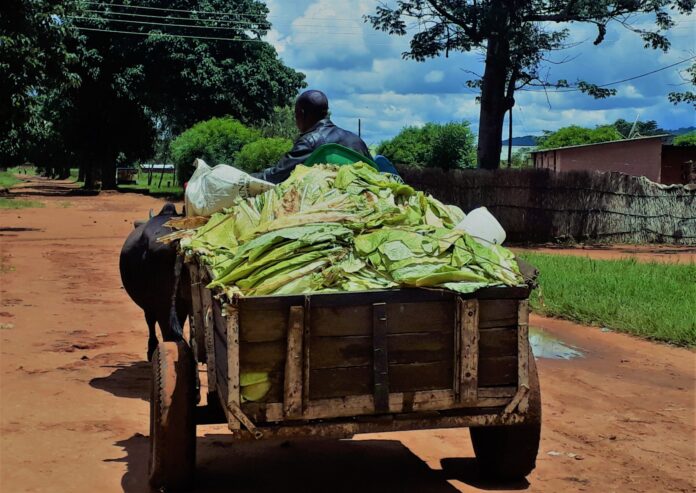By Staff Writer
Money paid by small-scale farmers through a government-funded farmer input support programme (FISP), for seed and fertilizer have gone missing leaving several of them unable to access seed and fertilizer.
MakanDay also has established that government’s debts to agro-dealers is over K780 million. Attempts to obtain government confirmation and comment have failed.
A highly placed police source told MakanDay that the farmers first reported the case of theft to police in November 2018. He said initial police investigations showed that the criminal syndicate in FISP involves government extension workers at Chongwe district agricultural office and some agro-dealers.
The Ministry of Agriculture has not responded to Makanday’s repeated requests for explanation.
Zambia police spokesperson, Esther Katongo says the police don’t have the case in their system.
Government, through the ministry introduced the Zambia Integrated Agriculture Management Information System (ZIAMIS), a web-based online database to manage routine information collected from farmers. The system, hosted by SMART Zambia, an e-government branch, is accessible to farmers, suppliers, agro-dealers and banks through a set of associated applications for farmer registration, market price and collection of inputs.

SMART Zambia national coordinator, Dr Martine Mtonga directed MakanDay to the ministry in charge of FISP. He however, said his establishment has put in enough security measures to ensure the online platform is safe from fraudsters.
“You may be aware that ICTs can be vulnerable here and there but we (SMART Zambia) has put in some measures which I can’t mention because it is an issue of security,” he said.
In 2017, Ben Socks Khondowe, a small-scale farmer and others formed Thelesheko women multi-purpose cooperative society which they registered at the registrer of societies and at Chongwe branch of the ministry of agriculture.
The cooperative qualified for FISP, submitted a list of 47 members to a camp extension officer, but only five of the members were approved as beneficiaries for FISP in the 2018/2019 season. The accepted members where then informed to go to the district agricultural office to collect “authority to deposit document” but could not do as they were told they had already collected the document when in fact not.
One of the Theleseko cooperative members, had received an sms, informing her she qualified for the programme but when she went to the district office for the document, she was informed she had already contributed K400.00 and collected the inputs, when in fact not.
MakanDay has discovered that the Theleseko cooperative issue is widespread as it occurs in many other parts of the country.
Levy Mwanawasa, then president who died in office in 2008 mooted FISP in 2002 to help boost the fortunes of small-scale farmers, even though the programme has failed to live up to its expectation. Each farmer would qualify for a three-year consecutive on the programme, but many have been on it since inception. (See footnote to understand how FISP works)
Government, through FISP is currently supporting one million small-scale farmers with agriculture inputs such as fertilizer and seed. The programme is executed using two approaches – Direct Input Supply (DIS), a form of traditional FISP, and the e-voucher system.
The e-voucher system is hampered by limited agro-dealer presence and poor network connectivity in most districts of Zambia.
Under the e-voucher system, inputs are supposed to be delivered through local agro-dealers. But due to late payments by government, the e-voucher has not created multiple jobs for numerous agro-dealers as it was initially planned.
Most local agro-dealers have been been affected by government’s delay to pay them. This has opened a way for large input suppliers to provide inputs to farmers. In 2019, Export Trading Group (ETG), a global conglomerate working in more than 40 countries, won the tender to supply farming inputs to farmers in Western and Southern Provinces.

MakanDay has established that large companies like ETG are engaged to supply inputs to farmers on credit through the e-voucher and wait for the payments at a later stage from government while smaller businesses are not able to bear the brunt.
Over the last few seasons, the agriculture sector has been riddled with many challenges from low productivity, droughts and high cost of agriculture inputs. The FISP challenges adds the burden on the already overstretched farmers.
Footnote
Farmers-apply for inputs through farmer organisations or co-operatives, raise money for deposits for the input packs applied for, collect input pack from transporters.
Local transporters collect inputs from district warehouses, deliver inputs to designated points, issue goods delivery notes to the beneficiary farmer organizations.
Camp Agricultural Committee-receive, consider and approve applications, communicate to farmer organisations about approvals made, communicate approved list of farmers and farmer organisations lists to the district agricultural committees and monitor utilization of inputs.
Warehouse managers receive seed from seed suppliers, issue GRN to transporters, issue seed to beneficiary farmer organizations as per ATC, enter all necessary information of the inputs dispatched in ZIAMIS from the catalogue, enter information of the Farmer organizations and transporter in ZIAMIS and provide weekly reports to DACO’s office.

Discover more from MAKANDAY
Subscribe to get the latest posts sent to your email.



